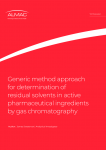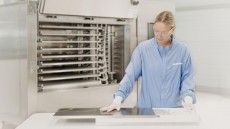South Korea mulls combining HIV drugs with antivirals to combat MERS

MERS like SARS is a coronavirus, but Korean experts say the virus is not as contagious. Whereas transmission rates for SARS among household contacts was as high as 25%, for MERS the figure is 4%.
“What we do have is super spreaders, where the disease spreads from one person to many others,” said Sung-Han Kim at the Department of Infectious Diseases, Asian Medical Centre. “In the community setting transmissibility is low and there is a low viral load in mild illnesses.”
So those infected with MERS who suffer mild symptoms are unlikely to infect others and will often recover quickly from the disease. However in hospital settings in Seoul, there have been super spreaders who were isolated only late with the illness and already had extremely high viral loads.
“In this situation the rate of infection would be high and there is a high transmission rate in hospital settings, just like with SARS,” said Kim. He added that the Samsung Medical Centre emergency room is an open space, often very crowded and “many people do not follow procedures to prevent the spread of disease.”
Antiviral therapy advised
An article earlier this year in the New England Journal of Medicine noted that the majority of patients in a Jeddah MERS-CoV outbreak had contact with a health care facility, other patients, or both.
The Korean Society of Infectious diseases has recommended combinational antiviral therapy, including Ribavirin, Interferon alpha-2a, Lopinavir/ritonavir, and convalescent plasma therapy.
“Some antiviral agents have been known to have anti-MERS-CoV activity in vitro. In addition, some clinical experiences have been reported,” noted Sung-Ham Kim.
“We do have HIV drugs that we are considering in combination together with other therapies, because these combinations seem to be effective in lowering the viral load. The plasma therapy is something we may consider in different situations, but its effectiveness has not been shown.”
However, he adds his personal opinion is that “the combination antiviral drugs are not so effective but might be helpful.”
South Korea has put the number of people diagnosed with the disease at 166. The newest patient is believed to have caught the disease while caring for a family member hospitalized in Seoul's Samsung Medical Center.
Experts believe the country's tradition of family members staying with sick ones in hospital rooms and caring for them may have encouraged MERS spread. Since the first case in Saudi Arabia in 2012, some 1,100 cases had been reported globally before the outbreak here.
The situation appears to be stabilising in South Korea, just as Thailand reports its first case.


















